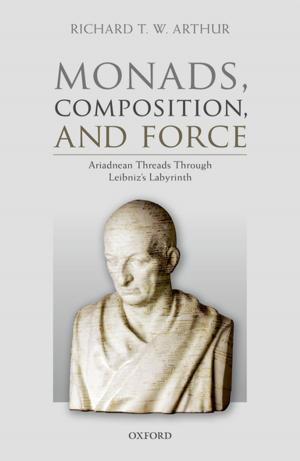The Cosmos of Duty
Henry Sidgwick's Methods of Ethics
Nonfiction, Religion & Spirituality, Philosophy, History, Criticism, & Surveys, Ethics & Moral Philosophy| Author: | Roger Crisp | ISBN: | 9780191025662 |
| Publisher: | OUP Oxford | Publication: | June 4, 2015 |
| Imprint: | OUP Oxford | Language: | English |
| Author: | Roger Crisp |
| ISBN: | 9780191025662 |
| Publisher: | OUP Oxford |
| Publication: | June 4, 2015 |
| Imprint: | OUP Oxford |
| Language: | English |
Roger Crisp presents a comprehensive study of Henry Sidgwick's The Methods of Ethics, a landmark work first published in 1874. Crisp argues that Sidgwick is largely right about many central issues in moral philosophy: the metaphysics and epistemology of ethics, consequentialism, hedonism about well-being, and the weight to be given to self-interest. He holds that Sidgwick's long discussion of 'common-sense' morality is probably the best discussion of deontology we have. And yet The Methods of Ethics can be hard to understand, and this is perhaps one reason why, though it is a philosophical goldmine, few have ventured deeply into it. What does Sidgwick mean by a 'method'? Why does he discuss only three methods? What are his arguments for hedonism and for utilitarianism? How can we make sense of the idea of moral intuition? What is the role of virtue in Sidgwick's ethics? Crisp addresses these and many other questions, offering a fresh view of Sidgwick's text which will assist any moral philosopher to gain more from it.
Roger Crisp presents a comprehensive study of Henry Sidgwick's The Methods of Ethics, a landmark work first published in 1874. Crisp argues that Sidgwick is largely right about many central issues in moral philosophy: the metaphysics and epistemology of ethics, consequentialism, hedonism about well-being, and the weight to be given to self-interest. He holds that Sidgwick's long discussion of 'common-sense' morality is probably the best discussion of deontology we have. And yet The Methods of Ethics can be hard to understand, and this is perhaps one reason why, though it is a philosophical goldmine, few have ventured deeply into it. What does Sidgwick mean by a 'method'? Why does he discuss only three methods? What are his arguments for hedonism and for utilitarianism? How can we make sense of the idea of moral intuition? What is the role of virtue in Sidgwick's ethics? Crisp addresses these and many other questions, offering a fresh view of Sidgwick's text which will assist any moral philosopher to gain more from it.















